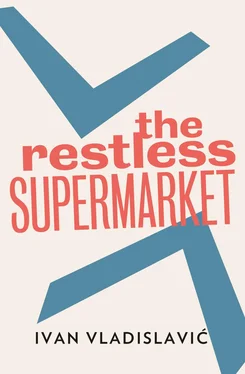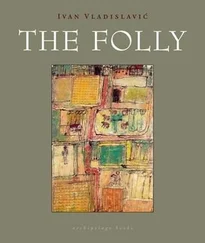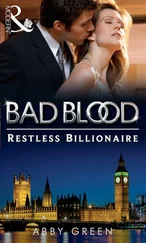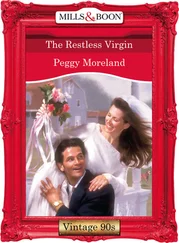Many of these newcomers were men like Bogey. They had ridiculous names, like Grog and Bleb, which I vowed never to utter. Just as I vowed never to answer to their flatulent ‘Aubreys’. They were argumentative and obstinate. They sat at our table crackling their yellow newspapers like stage lightning and thundering among the crockery with their fists. They were obsessed with communism, both its demise in the old countries and its apparent resurrection in the new. Whenever Eveready came near, they tried to draw him into discussion about the Congress of South African Trade Unions, to call a spade a spade. Their great love was ‘talking politics’. Our ways did not cut much ice with them.
In my eyes, what bound them together most tellingly was their putrid spelling. I overheard one of them in the Central News Agency trying to locate the works of Bulgakov, with which I was familiar in my youth. B-L-U-G-O-V- They couldn’t even spell correctly in their mother tongues!
Broken English is no longer a drawback in the business world. Bogey went into import-export, commodity unspecified. He spent a great deal of money on clothes. His first and proudest purchase was a leather jacket from the Oriental Plaza. The garment was clearly some sort of Mohammedan practical joke. It was made entirely of offcuts, hundreds of patches of different colours, mainly if not exclusively imitation, and none larger than a playing card. A joker, I should say, or a knave.
‘Neat, no?’ he asked like a matinee secret agent.
‘Neat, no,’ I replied. ‘You look like something swept out of an abattoir.’ The overall impression was of a bale of bloodied hides, with one rudimentary cephalon still attached. It was the meaty colour of him too, and the Bovrilish substance he had taken to smearing on his head in place of the home country’s pomade.
What was it again in the perfume factory? Something lost. (One of Wessels’s cracks.) Pull yourself together, Pedro. (Mine.)
Bogey showed me the lining of his jacket, as enragingly red as a matador’s cape. Then the label, which was sewn on the outside at the back, between the shoulder blades. Leatherama. I added it to my — rama list, below Cupboard-a-rama and Veg-a-rama. Merle said I was cruel. But even she had to laugh when he appeared a few days later in a pair of sunglasses with ‘Glarebusters’ printed across the lenses. My scorn he mistook for concern that the trade name obscured his vision, and he would not be quiet until I had looked through them and confirmed, out loud for all to hear, that one could see right through the words from the other side. ‘You see, I no see,’ he kept declaiming. And then, when I had them on my nose, plunging the place into darkness, he went on in tones of childlike wonder, as if there were some witchcraft involved, ‘ You no see, I see.’
This liking for things with their labels on the outside is degenerate. What sort of person willingly turns himself into an unsalaried sandwichman? A walking ‘salami on wry’ (Sonja’s Delicatessen). And pays for the privilege?
But despite my better judgement, I found myself making allowances for him. He was enchanted with being a consumer. No, it was more than that, for we are all consumers, willy-nilly, even the less materialistic of us, like myself. He, however, was a consumerist. His passion was not mere consumption, but consumerism. He regarded it with religious awe and defended it with the zeal of a convert. And coming from a country in which the opportunity to practise his faith had been so cruelly curtailed, who could blame him?
I saw him window-shopping in Pretoria Street one evening as I left the Café, and followed at a distance. He was waddling along with his hands behind his back, pigeon-toed, short-legged, bobbing his head from side to side, sweating in the butchered jacket. The blind trilby had been driven from his head by a straw Tyrolean with a guinea-fowl feather in the band. All in all, he looked like some odd bird that had strayed off course.
He stopped outside the Ambassador and looked into the glass-fronted display cases at photographs of revellers disporting themselves in the hotel’s discotheque. Shamelessly under the weather, most of them. Went on to Exclusive Books, where the latest blockbuster by the author of The Unhappy Millionaire had been given a whole window to itself. Went on again past Freeman and Marks, the outfitters, High Point Lock and Key, Papoutsi (from the Greek papoutsus , shoe) the shoe shop, past the Daelite (that is, Daylight) Pharmacy, past the trestle-table of knives and holsters at the top of the steps to the High Point Centre, tarried in front of Diplomat Luggage Specialists. He gazed through the iron mesh at the carry-alls and tote bags, some of them quite possibly relatives of his poor jacket. ‘Window-shopping.’ What a shabby word, concealing a rash of thwarted desire beneath a cloak of respectability. As if it were no more than a pleasant pastime. The expression on his face was curious and greedy, inquisitive and acquisitive. Avis, avid. Could there be some connection? I reached for my Pocket .
But he was on the move again, down the stairs past the hanging gardens of High Point, to the automatic photograph booth. He drew the curtain and I watched his feet sticking out below, facing west, and then north, and then south. He was having himself photographed, full-face and in profile, like a felon. And now east! From behind! Then I understood why: for the label. I hurried away before he should see me.
After several months, Bogey and his comrades discovered Benjamin Goldberg’s, the world’s largest ‘liquor supermarket’, and his faith in consumption found a shrine. He would ferry the new arrivals from Eastern Europe out there — more and more of them, as time went by — to introduce them to the mysterious abundance of the new world. Weekly pilgrimages were made. Sometimes they went merely to browse in the bottle-lined aisles, absorbing the atmosphere osmotically through their swarthy skins; more often, they returned with primitive forms of alcohol that the sober-minded could never have imagined and could scarcely pronounce, wines and brandies made from macerated fruits, beers as black as pitch, luminous vintages in oddly-shaped bottles with small animals suspended in them, liqueurs named after the leaders of obscure reformations, spirits so volatile the smokers had to stub out their cigarettes before the stoppers were drawn for fear of igniting a conflagration. They were always forcing their firewaters upon us, to win approval and friendship, when these were not freely given. Mrs Mavrokordatos let them keep their bottles behind the counter.
When the Bogeymen had had a few too many, which was often, one had to mind one’s tongue in their company. A single word — and not just the obvious tear-jerkers like ‘mother’ and ‘home’, but innocents like ‘football’ or ‘sausage’ — would make them weep inconsolably or break glasses in their fists. Mrs Mavrokordatos, more fool her, paid for the breakages from her own pocket. And Mevrouw Bonsma would chip in as well. They were just boys, she said, far away from home, as if that justified their Bohemian excesses.
All the others, even Spilkin, found this hooliganism picturesque. When I dissented, the old accusations of ‘dryness’ resurfaced.
‘Any fool can see,’ I had occasion to remark, ‘that the problem is not dryness but wetness, a certain soaked quality, a sousedness.’ Souséd, I styled it, pointedly, by analogy with curséd.
*
Not all the newcomers were Bogeymen and Bohemians, although they were all Philistines. As the circle widened, so did the cracks, and some peculiar creatures came floating through. There was a Mrs Hay, for example, a clairvoyant adept at performing her own facelifts, by gathering up the slack and securing it to her skull along the hairline and behind the ears with tabs of sticking plaster, in different ways every week, so that she always looked subtly unfamiliar. For me she predicted a long and happy life, bless her, in the bottom of a cup of Joko made with a tea bag (a round tea bag, which flavoured more in the steeping than the square kind, the advertising insisted, but portended less in the dregs). Then there was a McAllister who had worked for the municipality reading meters, until he fell into a French drain and broke his hip. He was prone to quoting Rabbie Burns at us, especially ‘To a Mouse’; and very often prone full stop, from a surfeit of usquebaugh. Jimbo, we called him, just a vowel removed from a pink elephant. And there was Wessels, who struck me at first only because he said ‘Hull-ohs’ when he arrived and ‘Chow-chow’ when he departed.
Читать дальше












